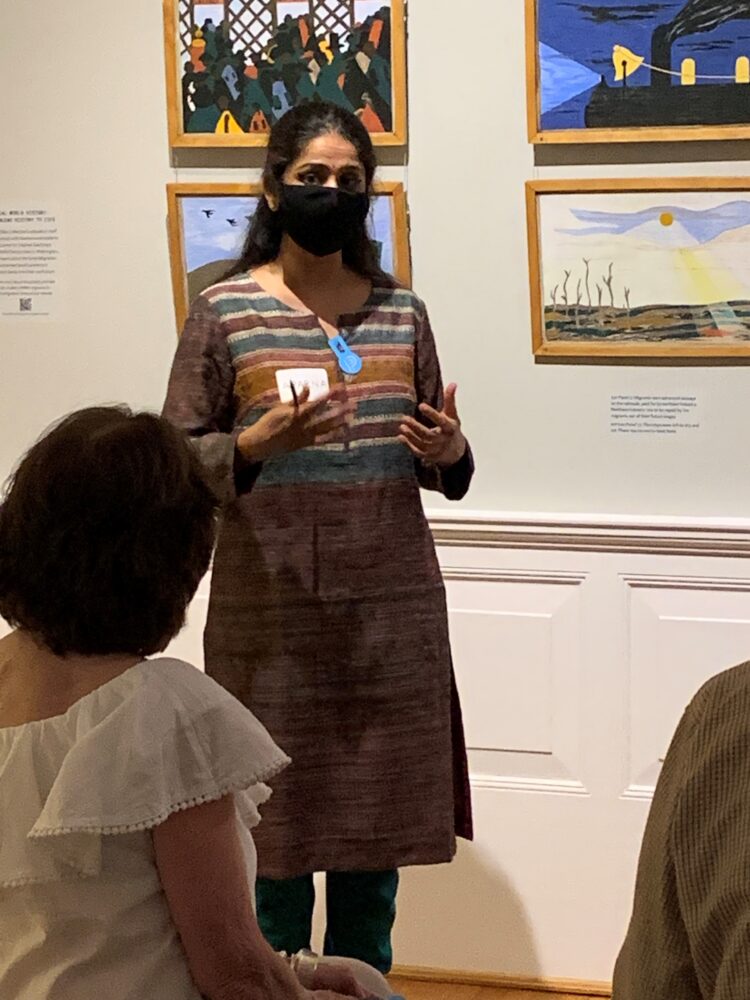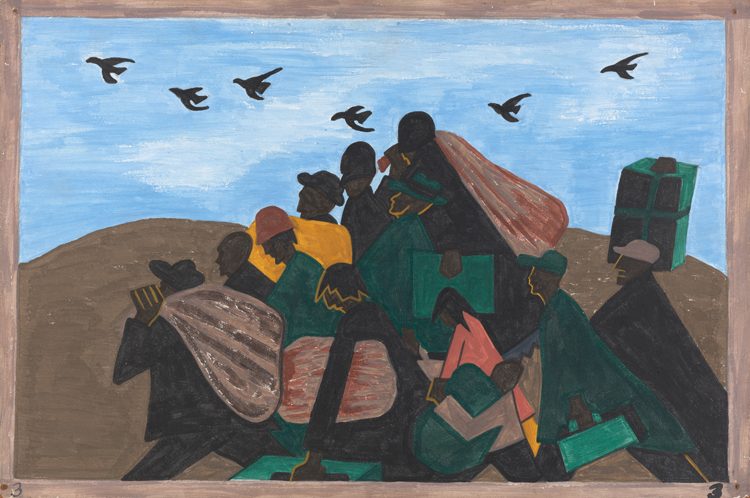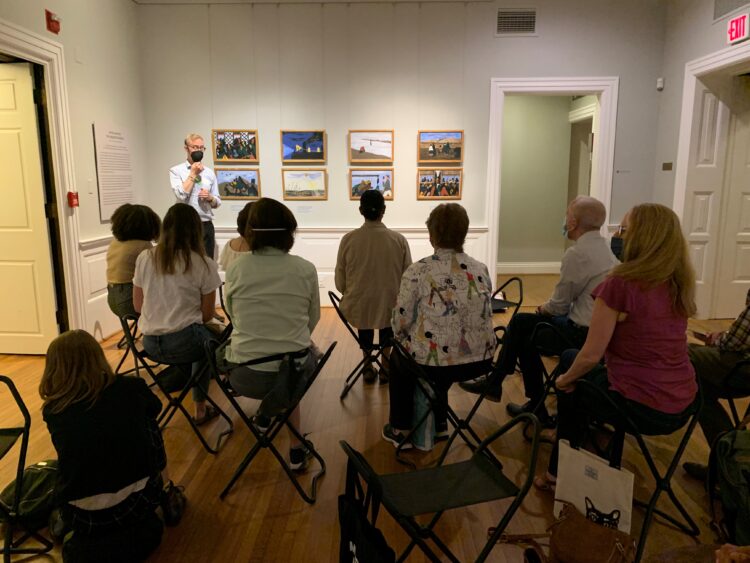Nature|Spirit|Art course Instructor Aparna Sadananda (www.innerstillnesswithaparna.com), who also leads our weekly virtual meditations, on the meditation she led for the workshop to help participants recognize human resilience.
Climate grief refers to feelings of sadness, loss, and anxiety in response to climate devastation (1). In Week 3 of the Nature|Spirit|Art course, we wanted to offer tools that could enable our course participants to explore their experience of climate grief with curiosity and process it in ways that might inspire purposeful action. Many spiritual traditions of the world teach that experiencing grief is inevitable, but suffering need not be. The Bhagavad Gita extols the power of karma yoga—the practice of intentional and skillful action performed selflessly and with an equanimous attitude—in delivering humanity from suffering. Bringing together this ancient wisdom with the contemporary practices of mindfulness, I led a meditation inspired by Panel 3 of Jacob Lawrence’s Migration Series.

Aparna Sadananda leads a meditation in front of Jacob Lawrence’s Migration Series. Photo: Donna Jonte
Our practice started with a guided body scan to help us become grounded in the present moment. Centering our attention this way, we took a close look at the painting, observing, and appreciating the poetic use of line, shape, space, color, and light. In Panel 3, a packed group of migrants moves across a barren landscape, under a flock of freely flying migratory birds. The migrants head forward, carrying the weight of their belongings and their past, in the same direction as the birds above. The caption reads, “From every Southern town, migrants left by the hundreds to travel north.”

Jacob Lawrence, The Migration Series, Panel no. 3, 1940-41, 12 x 18 in., Casein tempera on hardboard, The Phillips Collection, acquired 1942
As explained by course co-facilitator Joshua Shannon, this painting, like the other panels in the Migration Series, depicts the intertwined social, political, and environmental causes and consequences of the Great Migration northward. They are a grim reminder of the disproportionate impacts of climate change on the socio-economically disadvantaged communities that would be least prepared to respond to the crises.
To assist the participants in holding space for their subjective response to Panel 3, I led the participants through the following practice. We first practiced Ujjayi breathing—a deep breathing technique that helps slow down and lengthen the breath. They could silently repeat the phrases, “We are here, now” and “We are together” on each inhale and exhale respectively.
After taking several mindful breaths, the participants were guided through a non-judgmental awareness of the bodily sensations they could notice in that moment. To facilitate further relaxation into their awareness, I invited them to intuitively attune to the space within their bodies and notice the expansion of this space with each slow inhale. We visualized the mind as the sky and each thought as a cloud. Instead of attending to the clouds, we chose to focus on the sky’s clear light and expansive qualities. These practices provide opportunities for the practitioner to cultivate a shift from emotional reactivity to intentional response. Insights gained through an unbiased view in a calm state of mind can help to discover innovative solutions to what may seem like a dead end in a state of reactivity.
After resting their awareness here, the participants were guided to slowly come back to what they noticed in the mind-body now—the new present moment—and once again become grounded in their embodied presence. We concluded with a quote by the Sufi poet Rumi: “You are not just a drop in the ocean, you are the entire ocean in a single drop.”

Discussing The Migration Series. Photo: Donna Jonte
The sharing of our personal feelings about climate grief in groups of three, facilitated by course co-facilitator Robert Hardies, offered another approach to address this issue. In summary, these skills helped us recognize human resilience in the challenging journey from injustice, grief, and uncertainty to freedom and hopes of a better future, whether it was about climate change or a response to Jacob Lawrence’s Migration Series. We closed the evening on an empowering and optimistic note, setting the stage for Week 4, when we will explore “New Perspectives.”
Notes:
